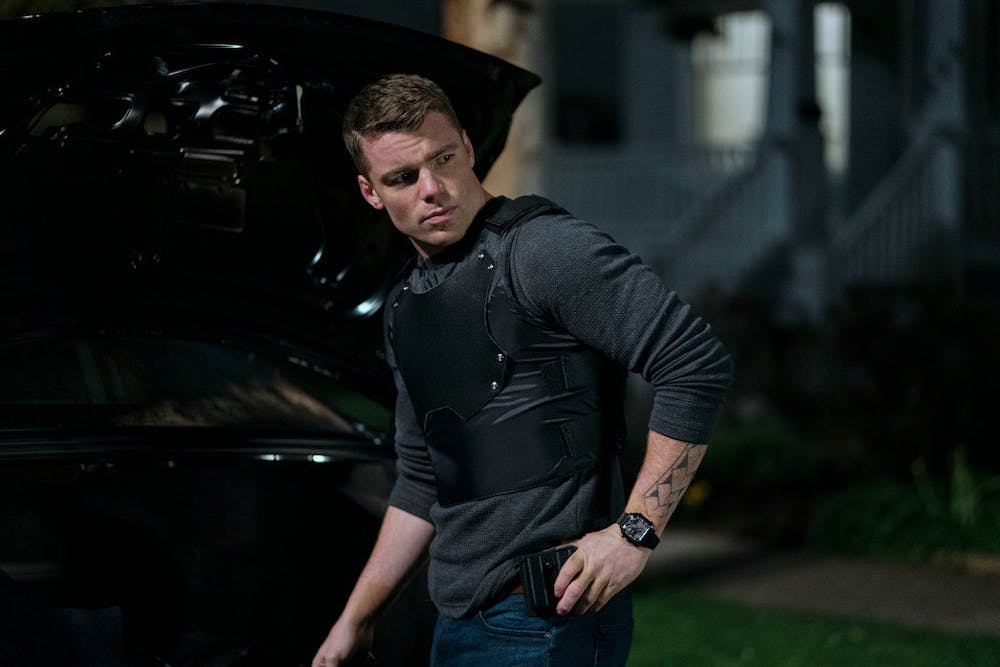On March 23, Netflix released its newest spy thriller “The Night Agent” — packed with conspiracies, politics, action and crime. The show garnered over 168 million hours of viewership in its debut week, overthrowing “You” to become Netflix's global No. 1 most-watched English TV series and getting renewed for season two mere days after its premiere.
“The Night Agent” follows Peter Sutherland (Gabriel Basso), an FBI agent on desk duty, working from the White House basement. While manning the helpline for Night Action— an unofficial branch comprised of members of the FBI, CIA and various other government agencies — he discovers a realm of dark secrets about various high-profile figures in the U.S. government and embarks on a mission to investigate the assassination of tech CEO Wick (Ben Cotton)’s parents.
The story, adapted from Matthew Quirk’s 2019 novel of the same name, has the audience glued to the screen from the very first minute. Shawn Ryan, the show’s creator, does a phenomenal job converting the narrative from page to screen. From scenes depicting a metro bombing to shocking reveals of government moles, the story hits audiences with one interesting twist after another. Each minute of the show adds an interesting layer and dynamic to the story, making audiences want to continually click the “next episode” button.
But “The Night Agent” does falter in certain areas. From the confusing motivations of its surprise villains to superficial conversations about delicate topics such as American intervention on foreign soil, the show leaves audiences searching for more.
Basso’s character is the quintessential underdog and enlists audiences on his side from the moment the show starts. Sutherland’s struggles with his father’s past and his low status in the FBI make audiences root for his search for the truth. But while Basso engaged the audience with his acting prowess, Sutherland’s personality lacked a certain iconic charisma. As a result, it’s difficult to imagine that Basso’s character will develop the same sort of cult following as comparable characters such as John Wick and Jack Bauer.
The chemistry between Sutherland and Rose Larkin (Luciane Buchanan), who is also being hunted by assassins, was well crafted by the actors and directors of the show. The relationship served as the emotional heart of the show. It’s important to note that Larkin was a well-developed character on her own accord, beyond her relationship with Sutherland, which justified her position as a key figure in the show.
While many performances in the show stood out, certain actors could have benefitted from more screen time and in-depth character development. Eve Harlow plays a conniving and unpredictable assassin as Ellen, while Fola Evans-Akingbola delivers charismatic and convincing action sequences as Secret Service agent Chelsea Arrington. But audiences are left wanting to see more of both characters.
The cinematography and editing in “The Night Agent” were also impactful. The gray and blue tones of the series helped establish the dramatic, political environment of the show, pulling audiences into the severity of the issues at hand.
The background score and various soundtracks in the series also deserve applause. The music was well placed to emote the feelings of the characters and help the audience empathize with them. The series finale, entitled “Fathers,” had an appropriately dramatic soundtrack that included “Heroes” by Gangs of Youth, which helped perfectly accentuate the uprising and achievements of the series’ underdog protagonist.
Though lacking in a few places, “The Night Agent” is entertaining, binge-worthy and easy to watch. The season finale coincides with the conclusion of Ryan’s book, and with no more source material left for the show, it will be interesting to see what is in store for Sutherland in season two.





